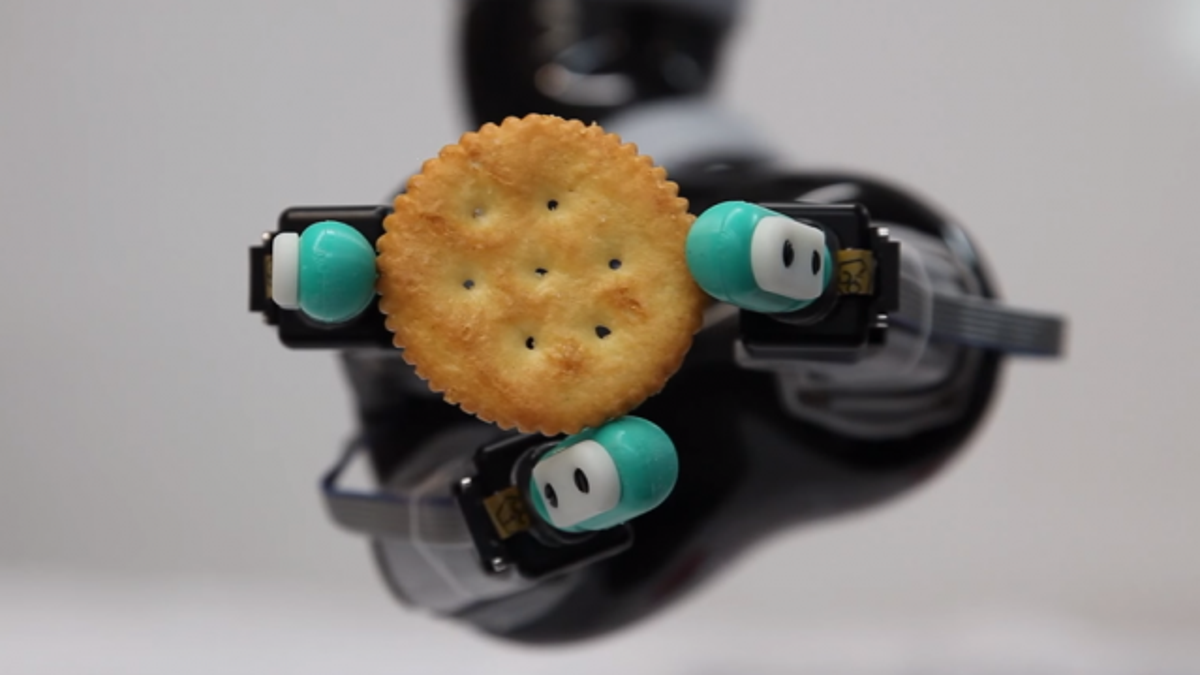
In an effort to make prosthetics more natural and instinctive to use, the sensory technology company SynTouch has made a breakthrough in the development of robotic fingers. Designed for installation on a variety of robotic platforms, SynTouch's revolutionary technology (dubbed BioTac) actually contains all sensory capabilities found in human fingertips. Moreover, the robotic attachment is no bigger than an actual fingertip in size, shape, and -- most of all -- compliance, meaning even the basic act of feeling the softness of a dog is something amputees have the ability to enjoy.
Originally developed by a team of researchers at the University of Southern California, SynTouch's BioTac fingers function almost exactly like a real human appendage. In addition to having the ability to sense applied force, temperature, and vibration, the fingers can also accurately detect corners of objects, if something is slipping out of a prosthetic hand, and even an item's texture.
SynTouch
"It allows you to pay significantly less attention to manipulating fragile objects like an egg than with a non-sensorized prosthetic hand," says SynTouch research engineer and amputee, Vikram Pandit. "It's basically going to allow me to move through my day quicker and faster and more like someone who has two hands."
What gives the BioTac finger its impressive ability to sense touch is a rigid core inside the device enclosed by a liquid-filled skin. This liquid signals to the device's sensors exactly how much force each finger should exert to avoid crushing whatever it is it intends to hold. For instance, when grabbing for an egg, the finger's liquid alerts the device to grab the egg softly while also sensing its texture. It's this level of sensitization, Pandit says, which allows him to function quicker throughout his day.
Though other companies like DARPA have developed similar technologies, SynTouch's BioTac passed its prototype phase and is now in the hands of consumers. With those using the device reporting on its incredibly high accuracy and sensitivity, BioTac appears likely to continue to revolutionize the industry of prosthetics.
